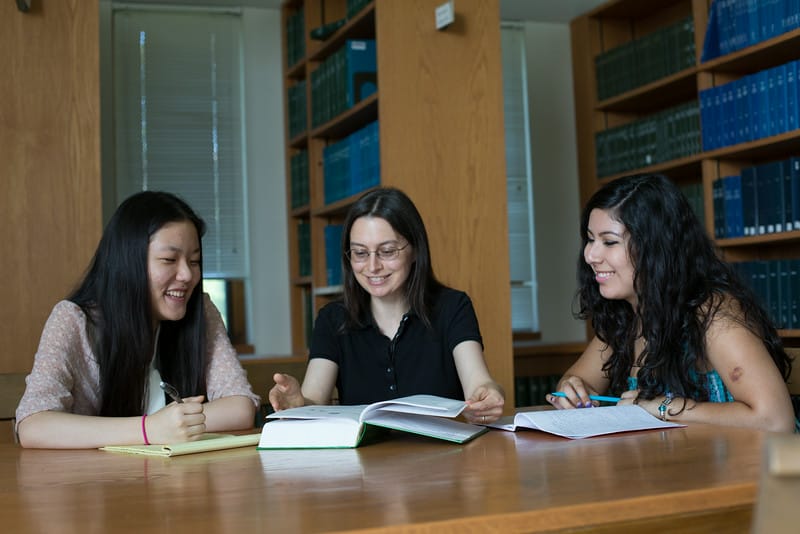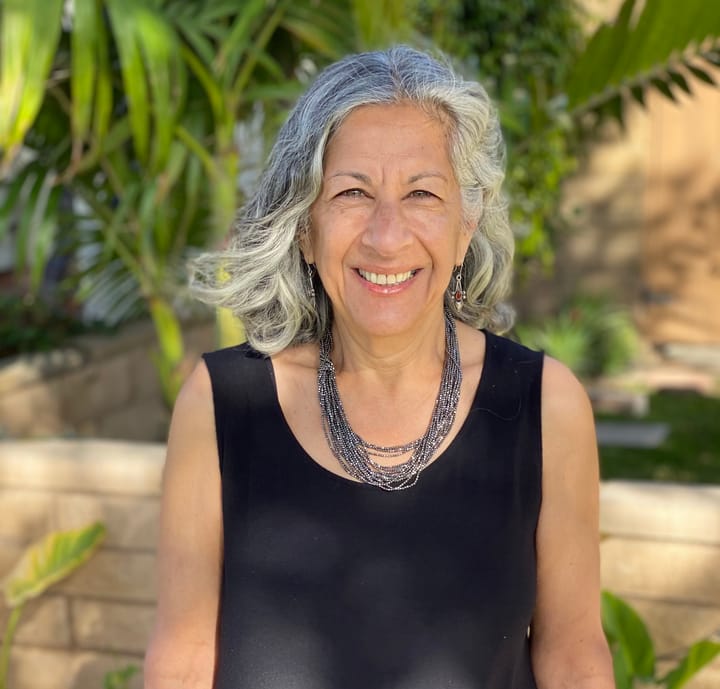Students Mourn Loss of Professor Tanya Leise
Tanya Leise, Brian E. Boyle professor in mathematics and computer science and the first woman mathematician tenured at the college, died on Jan. 18 after persevering through a cancer diagnosis. Several students shared remembrances of her impact at the college and in their own lives.

Tanya Leise, Brian E. Boyle professor in mathematics and computer science and the first woman mathematician tenured at the college, died on Jan. 18 after persevering through a cancer diagnosis.
Leise began teaching at the college in 2004. Her focus on applied math, as opposed to the theoretical perspective many Amherst math classes center on, revolutionized the department. And her research transformed the field at large.
Having invested herself deeply in the college, Leise’s death has had a heartbreaking resonance across campus. For their part, students loved Leise for her patient, accommodating teaching style, and the contemporary relevance of her classes.
Cassandra Jin ’24, who researched circadian rhythms with Leise in the summer of 2021, said that Leise was “extremely patient.”
“She was accommodating and really smart,” Jin said. “She made us feel like she needed us even when she probably didn’t. She had a very sweet, warm personality”
The content of her courses like “Voting and Elections” and “Math Modeling,” was also highly impactful, helping students see that “there was a goal to learning all of the math,” said Jack Trent ’23.
“Where a class like ’‘Groups, [Rings, and Fields]’ isn’t going to come up in conversation, ’‘Voting and Elections’ is,” Trent said.
As Massachusetts considered approval voting, Trent was able to integrate course topics into talking points on campus.
Trent described Leise’s “deep-seated confidence, moving through lectures with an air of calm.”
“She was going through complicated material but presented it so well and so assuredly. It made students feel like there was not a high cost in learning material,” Trent said.
Although Trent took both of his classes with Leise during the pandemic, she was “constantly checking in and we had great-natured interactions.”
Beyond her interactions with students, Leise played an invaluable role in the math department at the college by serving as department chair, math colloquia organizer, and comprehensive exam director. She also created the college’s applied mathematics curriculum.
“Tanya will be greatly missed by the Amherst community, for which she gave so much,” said Catherine Epstein, provost and dean of the faculty, in a campus-wide email on Jan. 20.
Leise graduated with honors from Stanford University with a B.S. in mathematics, and received both an M.S. and Ph.D. degrees in mathematics from Texas A&M University.
With widely cited research pertaining to biomathematics, mathematical modeling, and circadian rhythms, Leise’s impact extends far beyond the college—in her field, but also in the lives of her students.
“Her 2006 co-authored (with Kurt Bryan) article on the linear algebra behind Google is considered a landmark expository piece,” Epstein wrote.
Jack Liebersohn ’09, assistant professor in economics at the University of California, Irvine, said that Leise’s coverage of the topic was given at a time where Google was a newer application, it felt extremely relevant.
Learning about the math behind the website made him feel like he was “on the cutting edge” of mathematics, Liebersohn said.
Through taking linear algebra with applications with Leise, Liebersohn said that it felt like he was really learning, a change from the “contrived word problems” that other math classes employ.
“Part of the reason I took the class was because it was supposed to be easy,” Liebersohn said. “But it turned out that the reason it was easy was because she taught the challenging material so well … so intuitively.”
Jin shared her gratitude for having been able to work with Leise, “and seen how her incredible mind works. It is a real sadness that she is no longer with us,” she said.
Jin added that working with Leise made her realize that she wanted to pursue a career in applied mathematics and biostatistics.
“I had no coding experience prior to college and I was daunted by it,” Jin said. “Being immersed in [coding] with her guidance showed me that with the right instructor, it is very accessible and possible.”
Liebersohn said he constantly thinks about the lessons he’s learned from Leise.
“I wouldn’t have been able to get a finance PhD if I hadn’t majored in math,” Liebersohn said. “I wouldn’t have majored in math if I hadn’t taken a class and been advised by [Leise].”
“I can’t overstate how much of an effect she had on me,” Liebersohn continued. “She was one of the kindest professors I knew and I took it for granted. Having become a professor myself now, with a young child, I realize how much work it was for her, in addition to the research that gets you tenure … but she made it seem like it was what she was happiest to do in the world.”
Editor’s Note: Leise’s colleagues in the math department collectively declined to be interviewed for this article, expressing that they felt unable to do full justice to her memory by commenting at this moment. Leise’s family also indicated a preference for privacy. The Student will follow up at a later date to more fully commemorate Leise’s legacy.




Comments ()